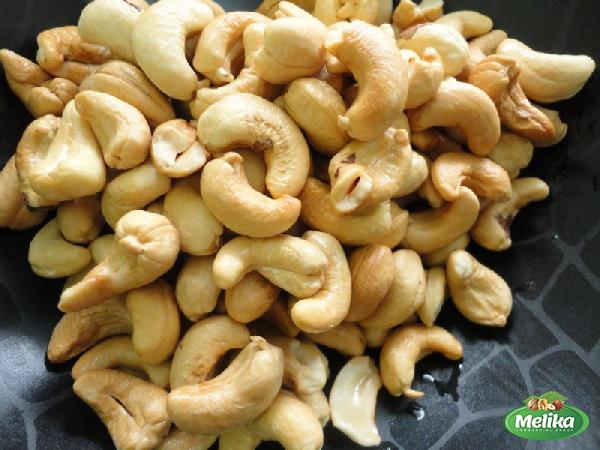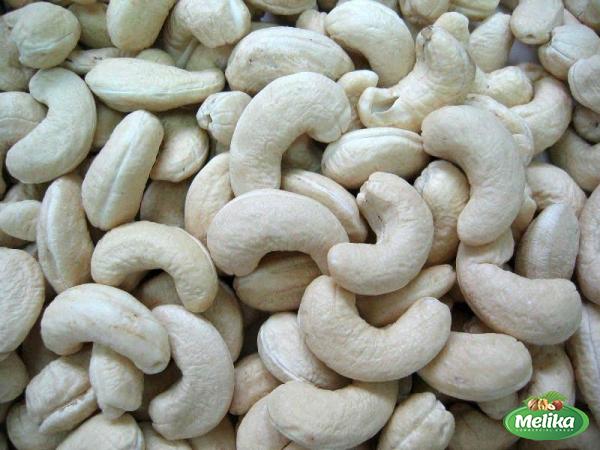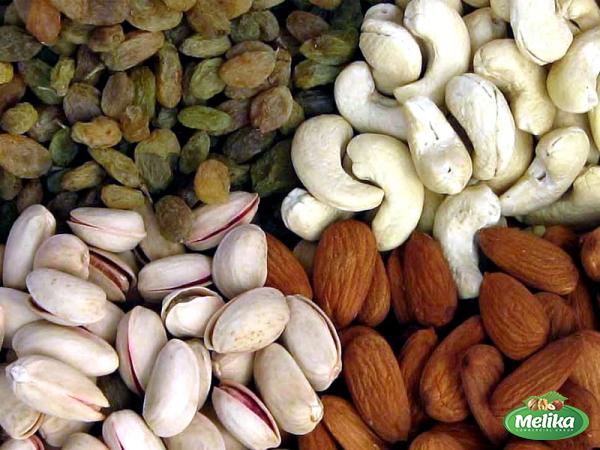The cashew nut industry plays a significant role in the economic growth of Chennai, India. As one of the leading producers and exporters of cashew nuts, Chennai has been at the forefront of this industry for several decades. This article aims to provide a summary of the cashew nut industry in Chennai, detailing the production process, market dynamics, challenges, and opportunities for growth. 1. Cashew Nut Cultivation: Chennai boasts a favorable climate for cashew nut cultivation. Cashew trees thrive in hot and humid climates, making Chennai and its surrounding regions an ideal location for cashew nut plantations. Farmers focus on the cultivation of cashew trees, which can yield cashew nuts for several decades with proper care. These trees require fertile soil and regular watering to achieve optimal productivity. 2. Harvesting and Processing: Cashew nut harvesting involves a labor-intensive process. The cashew apple, which surrounds the nut, is first removed, and the cashew nut is then carefully extracted from its enclosure. The nuts are cleaned, dried, and undergo a decorticating process to remove the outer shell. Following this, the nuts are graded based on size, color, and quality, ensuring that only top-quality nuts reach the market. Chennai has a well-established network of processing units that efficiently handle these operations. 3. Market Dynamics: The cashew nut industry in Chennai has witnessed steady growth due to both domestic and international demand. India is one of the largest consumers of cashew nuts globally, with an increasing trend towards adopting a healthier lifestyle. Cashew nuts are widely used in Indian cuisine, as well as in snack foods, bakery products, and confectioneries. Chennai’s proximity to major ports facilitates easy export to countries around the world, further boosting the market dynamics of the cashew nut industry. 4. Export Potential: Chennai is a significant exporter of cashew nuts, catering to both developed and developing countries.

nuts
 The United States, the European Union, the Middle East, and Southeast Asia are major importers of cashew nuts from Chennai. The industry has also witnessed an increase in demand from emerging markets such as China and Brazil. Chennai’s well-established infrastructure and transport networks, along with international trade agreements, have contributed to its growth as a prominent cashew nut exporter. 5. Challenges Faced by the Industry: The cashew nut industry in Chennai is not without its challenges. Fluctuations in climatic conditions, such as excessive rainfall or drought, can negatively impact cashew nut yields. This, in turn, results in a shortage of raw materials for processing units. Additionally, competition from other cashew nut-producing countries and quality control issues also pose challenges to the industry. Maintaining consistent quality and complying with international food safety standards are crucial for Chennai’s cashew nut industry to remain competitive. 6. Opportunities for Growth: Despite the challenges, there are several opportunities for the cashew nut industry in Chennai to grow and expand. The increasing global demand for healthy and organic food products presents an avenue for producers to explore and tap into the market. Chennai’s proximity to agricultural research institutes allows for advancements in cultivation techniques, pest control measures, and improved varieties of cashew nuts. Furthermore, expanding investments in processing units, infrastructure development, and adopting innovative technology can enhance productivity and efficiency, leading to the industry’s sustained growth. Conclusion: The cashew nut industry in Chennai has proven to be a major contributor to the region’s economy. The favorable climatic conditions, extensive plantation of cashew trees, well-established processing units, and easy access to international markets position Chennai as a prominent player in the cashew nut industry. By addressing challenges and embracing opportunities for growth, Chennai’s cashew nut industry can further strengthen its position as a leading exporter and continue driving economic prosperity for the city and its stakeholders.The Cashew Nut Industry in Chennai: Emerging Trends and Business Strategies 1. Increased Domestic Consumption: The cashew nut industry in Chennai has experienced a surge in domestic consumption in recent years. With a growing middle class and increasing disposable income, the demand for cashew nuts as a snack and culinary ingredient has significantly risen. Chennai’s vibrant food culture, which includes a wide array of traditional dishes and snacks, has further fueled the demand for cashew nuts. To capitalize on this trend, cashew nut producers in Chennai are actively promoting their products to local consumers through innovative marketing strategies and product diversification. 2. Focus on Quality Control: Quality control is a key aspect of the cashew nut industry in Chennai. As the industry moves towards meeting international quality standards, producers are prioritizing the implementation of stringent quality control measures. This includes implementing proper hygiene practices during processing, ensuring accurate grading, and conducting regular testing for aflatoxin contamination. Chennai-based cashew nut producers are also engaging in partnerships with quality certification bodies to obtain certifications such as ISO 22000 and HACCP, further enhancing their reputation in the global market.
The United States, the European Union, the Middle East, and Southeast Asia are major importers of cashew nuts from Chennai. The industry has also witnessed an increase in demand from emerging markets such as China and Brazil. Chennai’s well-established infrastructure and transport networks, along with international trade agreements, have contributed to its growth as a prominent cashew nut exporter. 5. Challenges Faced by the Industry: The cashew nut industry in Chennai is not without its challenges. Fluctuations in climatic conditions, such as excessive rainfall or drought, can negatively impact cashew nut yields. This, in turn, results in a shortage of raw materials for processing units. Additionally, competition from other cashew nut-producing countries and quality control issues also pose challenges to the industry. Maintaining consistent quality and complying with international food safety standards are crucial for Chennai’s cashew nut industry to remain competitive. 6. Opportunities for Growth: Despite the challenges, there are several opportunities for the cashew nut industry in Chennai to grow and expand. The increasing global demand for healthy and organic food products presents an avenue for producers to explore and tap into the market. Chennai’s proximity to agricultural research institutes allows for advancements in cultivation techniques, pest control measures, and improved varieties of cashew nuts. Furthermore, expanding investments in processing units, infrastructure development, and adopting innovative technology can enhance productivity and efficiency, leading to the industry’s sustained growth. Conclusion: The cashew nut industry in Chennai has proven to be a major contributor to the region’s economy. The favorable climatic conditions, extensive plantation of cashew trees, well-established processing units, and easy access to international markets position Chennai as a prominent player in the cashew nut industry. By addressing challenges and embracing opportunities for growth, Chennai’s cashew nut industry can further strengthen its position as a leading exporter and continue driving economic prosperity for the city and its stakeholders.The Cashew Nut Industry in Chennai: Emerging Trends and Business Strategies 1. Increased Domestic Consumption: The cashew nut industry in Chennai has experienced a surge in domestic consumption in recent years. With a growing middle class and increasing disposable income, the demand for cashew nuts as a snack and culinary ingredient has significantly risen. Chennai’s vibrant food culture, which includes a wide array of traditional dishes and snacks, has further fueled the demand for cashew nuts. To capitalize on this trend, cashew nut producers in Chennai are actively promoting their products to local consumers through innovative marketing strategies and product diversification. 2. Focus on Quality Control: Quality control is a key aspect of the cashew nut industry in Chennai. As the industry moves towards meeting international quality standards, producers are prioritizing the implementation of stringent quality control measures. This includes implementing proper hygiene practices during processing, ensuring accurate grading, and conducting regular testing for aflatoxin contamination. Chennai-based cashew nut producers are also engaging in partnerships with quality certification bodies to obtain certifications such as ISO 22000 and HACCP, further enhancing their reputation in the global market.
Specifications of nuts
 3. Expansion into Organic Cashew Nuts: The shift towards healthier and organic food choices has created an opportunity for Chennai’s cashew nut industry to expand into the organic market segment. Organic cashew nuts from Chennai are gaining popularity due to their natural cultivation methods and absence of chemical additives. Farmers in Chennai are embracing organic farming practices and obtaining organic certifications to cater to the growing demand for organic cashew nuts both domestically and internationally. This market segment offers higher profit margins and the potential to attract health-conscious consumers worldwide. 4. Value-Added Cashew Nut Products: In a bid to diversify product offerings and increase profitability, Chennai’s cashew nut industry is focusing on the development of value-added cashew nut products. Manufacturers are introducing flavored cashew nuts, roasted cashews, cashew butter, and cashew-based snacks. These value-added products cater to evolving consumer tastes and preferences, offering a wider range of options beyond traditional plain cashews. The popularity of these products in Chennai’s local market has paved the way for export opportunities, particularly in the snack food and confectionery sectors. 5. Technological Advancements: Chennai’s cashew nut industry is embracing technological advancements to improve efficiency and productivity throughout the supply chain. Automated cashew processing machines have made the decorticating and grading processes more streamlined, reducing labor costs and enhancing output. Cashew processing units are also utilizing sophisticated sorting machines and optical scanners to maintain consistent quality and eliminate defective nuts. The adoption of technology has not only improved productivity but also reduced wastage, thus boosting profitability for cashew nut producers in Chennai. 6. Government Support and Initiatives: The government of Tamil Nadu and the Indian government as a whole have implemented several initiatives to support the cashew nut industry in Chennai.
3. Expansion into Organic Cashew Nuts: The shift towards healthier and organic food choices has created an opportunity for Chennai’s cashew nut industry to expand into the organic market segment. Organic cashew nuts from Chennai are gaining popularity due to their natural cultivation methods and absence of chemical additives. Farmers in Chennai are embracing organic farming practices and obtaining organic certifications to cater to the growing demand for organic cashew nuts both domestically and internationally. This market segment offers higher profit margins and the potential to attract health-conscious consumers worldwide. 4. Value-Added Cashew Nut Products: In a bid to diversify product offerings and increase profitability, Chennai’s cashew nut industry is focusing on the development of value-added cashew nut products. Manufacturers are introducing flavored cashew nuts, roasted cashews, cashew butter, and cashew-based snacks. These value-added products cater to evolving consumer tastes and preferences, offering a wider range of options beyond traditional plain cashews. The popularity of these products in Chennai’s local market has paved the way for export opportunities, particularly in the snack food and confectionery sectors. 5. Technological Advancements: Chennai’s cashew nut industry is embracing technological advancements to improve efficiency and productivity throughout the supply chain. Automated cashew processing machines have made the decorticating and grading processes more streamlined, reducing labor costs and enhancing output. Cashew processing units are also utilizing sophisticated sorting machines and optical scanners to maintain consistent quality and eliminate defective nuts. The adoption of technology has not only improved productivity but also reduced wastage, thus boosting profitability for cashew nut producers in Chennai. 6. Government Support and Initiatives: The government of Tamil Nadu and the Indian government as a whole have implemented several initiatives to support the cashew nut industry in Chennai.
buy nuts
 These initiatives include subsidies for investment in processing infrastructure, financial assistance for farmers to expand cashew nut cultivation, and training programs to improve farming techniques and post-harvest practices. Chennai-based cashew nut producers are encouraged to take advantage of these government schemes to enhance their productivity and competitiveness in both domestic and international markets. 7. Export Diversification: To mitigate risks associated with relying too heavily on a few export markets, Chennai’s cashew nut industry is actively diversifying its export destinations. While the traditional export markets remain crucial, industry players are exploring new markets such as Africa, Latin America, and Australia. Chennai’s well-established export infrastructure, including port facilities and shipping connections, offers a strategic advantage in expanding into these emerging markets. Diversifying export destinations not only reduces dependency on specific countries but also helps in balancing supply and demand fluctuations. 8. Sustainable Practices: Sustainability is a growing concern in the cashew nut industry, and producers in Chennai are adopting sustainable practices to address these concerns. This includes promoting water conservation methods, implementing eco-friendly packaging, and adopting farming techniques that reduce environmental impact. The demand for sustainably produced cashew nuts is steadily increasing, and Chennai’s cashew nut industry is well-positioned to meet this demand through responsible and environmentally friendly practices. 9. Collaborations with Research Institutions: To stay ahead of market trends and advancements in cultivation and processing techniques, Chennai’s cashew nut industry actively collaborates with research institutions and agricultural universities. These collaborations facilitate knowledge exchange, innovation, and the development of new cashew nut varieties with improved characteristics. Chennai serves as a hub for these collaborations, enabling the industry to stay at the forefront of scientific advancements in the cashew nut sector. 10. Branding and Marketing: With increasing competition in the global cashew nut market, branding and marketing play a crucial role in the success of Chennai-based cashew nut producers. Building a strong brand identity, highlighting product quality, and leveraging Chennai’s reputation as an established cashew nut hub are essential to attract customers and maintain market share. Producers are investing in effective marketing campaigns, participation in international trade fairs, and digital marketing strategies to create awareness among target consumers and forge long-term business relationships. Conclusion: The cashew nut industry in Chennai continues to thrive, supported by favorable climatic conditions, a well-established supply chain, and a focus on quality and innovation. Chennai-based producers are capitalizing on emerging trends such as increased domestic consumption, organic cashew nuts, value-added products, and export diversification. With government support, technological advancements, and sustainable practices, the industry is well-positioned for growth. By embracing these business strategies, Chennai’s cashew nut industry can retain its position as a leading global exporter while catering to evolving consumer demands and contributing to the region’s economic development.
These initiatives include subsidies for investment in processing infrastructure, financial assistance for farmers to expand cashew nut cultivation, and training programs to improve farming techniques and post-harvest practices. Chennai-based cashew nut producers are encouraged to take advantage of these government schemes to enhance their productivity and competitiveness in both domestic and international markets. 7. Export Diversification: To mitigate risks associated with relying too heavily on a few export markets, Chennai’s cashew nut industry is actively diversifying its export destinations. While the traditional export markets remain crucial, industry players are exploring new markets such as Africa, Latin America, and Australia. Chennai’s well-established export infrastructure, including port facilities and shipping connections, offers a strategic advantage in expanding into these emerging markets. Diversifying export destinations not only reduces dependency on specific countries but also helps in balancing supply and demand fluctuations. 8. Sustainable Practices: Sustainability is a growing concern in the cashew nut industry, and producers in Chennai are adopting sustainable practices to address these concerns. This includes promoting water conservation methods, implementing eco-friendly packaging, and adopting farming techniques that reduce environmental impact. The demand for sustainably produced cashew nuts is steadily increasing, and Chennai’s cashew nut industry is well-positioned to meet this demand through responsible and environmentally friendly practices. 9. Collaborations with Research Institutions: To stay ahead of market trends and advancements in cultivation and processing techniques, Chennai’s cashew nut industry actively collaborates with research institutions and agricultural universities. These collaborations facilitate knowledge exchange, innovation, and the development of new cashew nut varieties with improved characteristics. Chennai serves as a hub for these collaborations, enabling the industry to stay at the forefront of scientific advancements in the cashew nut sector. 10. Branding and Marketing: With increasing competition in the global cashew nut market, branding and marketing play a crucial role in the success of Chennai-based cashew nut producers. Building a strong brand identity, highlighting product quality, and leveraging Chennai’s reputation as an established cashew nut hub are essential to attract customers and maintain market share. Producers are investing in effective marketing campaigns, participation in international trade fairs, and digital marketing strategies to create awareness among target consumers and forge long-term business relationships. Conclusion: The cashew nut industry in Chennai continues to thrive, supported by favorable climatic conditions, a well-established supply chain, and a focus on quality and innovation. Chennai-based producers are capitalizing on emerging trends such as increased domestic consumption, organic cashew nuts, value-added products, and export diversification. With government support, technological advancements, and sustainable practices, the industry is well-positioned for growth. By embracing these business strategies, Chennai’s cashew nut industry can retain its position as a leading global exporter while catering to evolving consumer demands and contributing to the region’s economic development.











Your comment submitted.